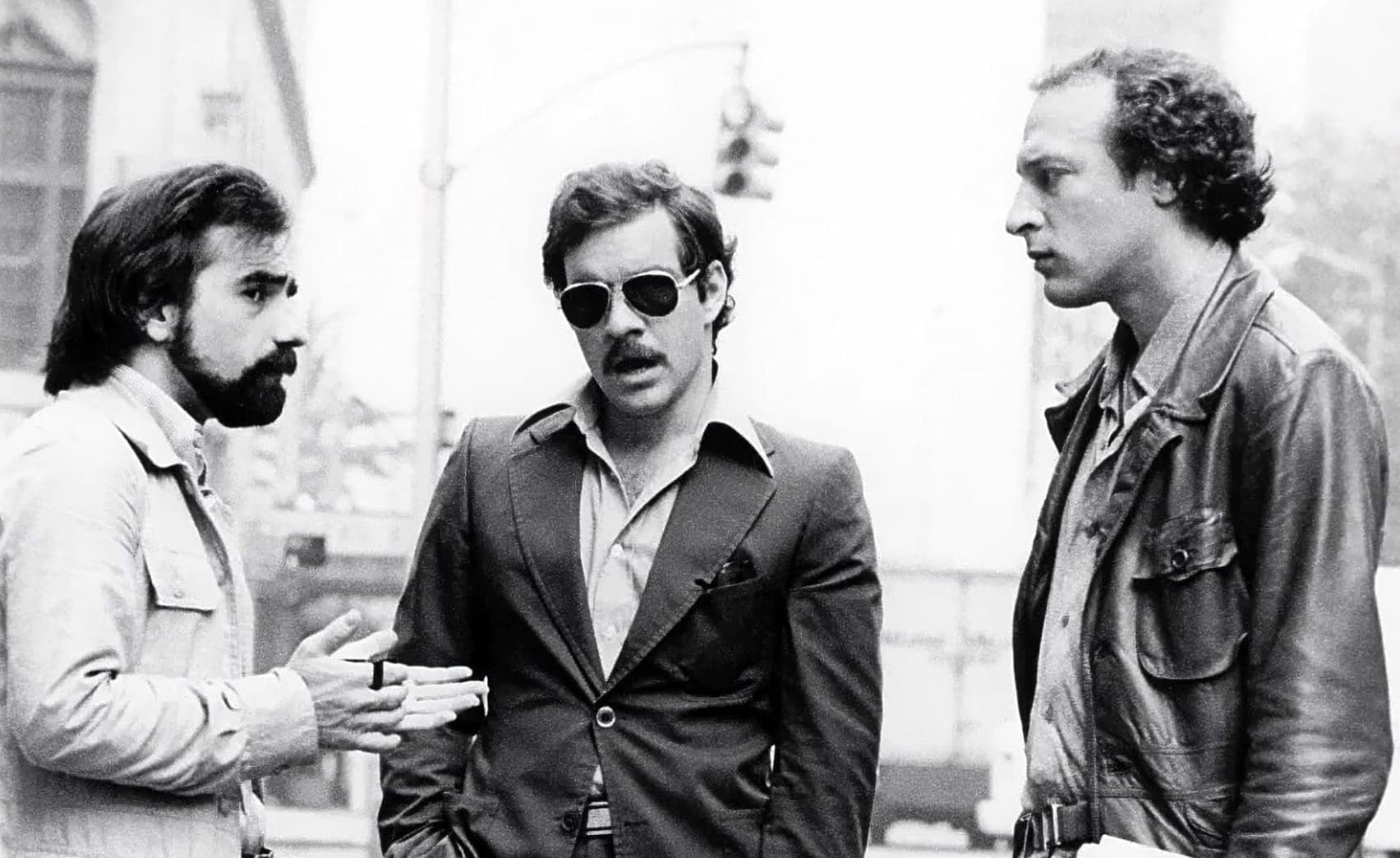
One of the biggest publishing sensations of 2022 was Quentin Tarantino’s book Cinema Speculation. In it, the celebrated director intersperses his experiences of going to the cinema in 1970s suburban Los Angeles with his thoughts about genre, the careers of filmmakers and actors, and makes some imaginative re-castings. One section prompted a raft of news stories in the days following the book’s release.
Tarantino has described Martin Scorsese’s Taxi Driver as “maybe the greatest first-person character study ever committed to film.” But, he argues, the film could have been even better if its producers at Columbia Pictures had allowed Scorsese to use Paul Schrader’s original script. One of its key characters, a pimp named Sport, was played by Harvey Keitel. The decision to cast a white actor in the role, Tarantino claims, undercuts the inherent racism of Robert De Niro’s character, Travis Bickle—particularly in the film’s bloody denouement.
“And who couldn’t handle that?” Tarantino wrote. “Black audiences? Or is it more likely that the white folks financing the movie were the ones made to feel uncomfortable by the imagery in Schrader’s original script?”
I had a chance to put this scenario to Schrader himself and the famously forthright writer and director set the record, and Tarantino, straight.
“I was involved in that decision,” Schrader said. “It wasn’t in the script. It was just taken for granted that pimps in New York are all black. And [Daniel] Melnick who ran it at Columbia said, ‘we’re going to have an incident in a theatre if you do this. If, at the end, Travis just goes and starts killing all the Black people—and only Black people—something’s going to happen. And it only takes one incident in a theatre to kill a film’.”
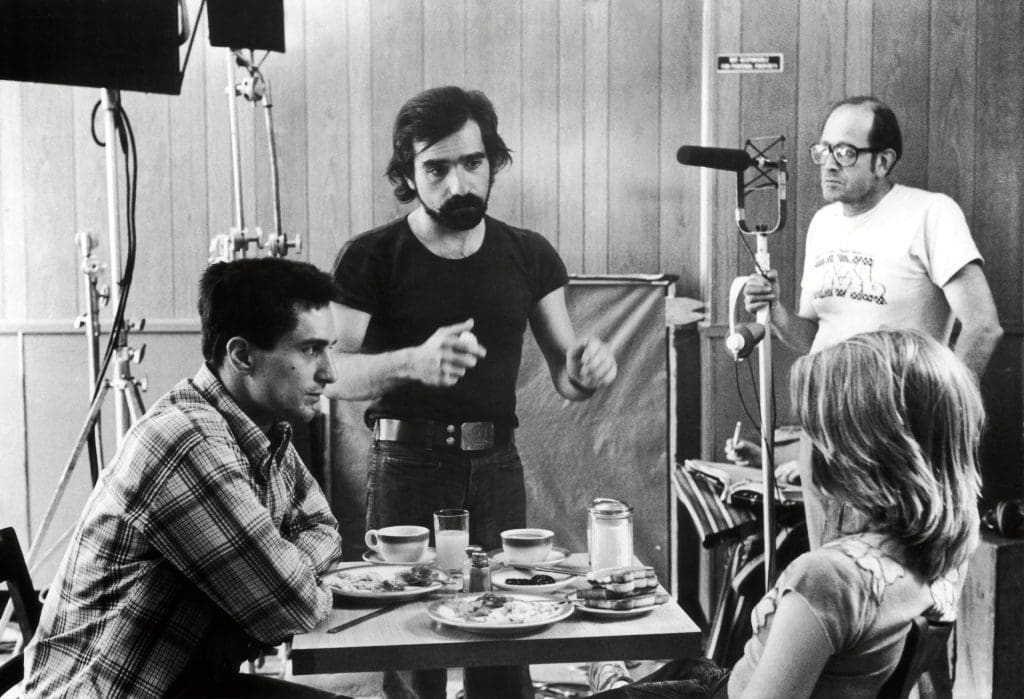
By the early 1970s, racial tension across the United States had already spread into cinemas. Films like Hi Mom!, Dirty Harry and Shaft had explored tensions and inspired conversations about racial violence in entertainment. Three years after Taxi Driver, The Warriors (Walter Hill’s dramatisation of teen violence) inspired feuds between Black street gangs resulting in three deaths. Distributor Paramount Pictures pulled advertising for the film and curtailed its theatrical run as a result. A film like Taxi Driver, already a topic of conversation throughout Hollywood after Brian De Palma turned down the opportunity to direct it, was setting studio executives on edge with its straight portrayal of Jodie Foster’s twelve-year-old sex worker, Iris, De Niro’s violent anti-hero and Scorsese’s unwillingness to yield to censorship.
“Marty had wanted to hire Harvey anyway,” Schrader says. “He decided, we’ll make Sport white, and we’ll make another one of the characters white, and that will take care of the problem. But what it meant was…” Schrader sighs, takes a sip of water and reorganises his thoughts. “Harvey comes to me and says, ‘what’s this character like?’ And I said, ‘I don’t know, I’ve never heard of a white pimp, not at this level.’ So, I was in New York, and I got tasked with the search for the great white pimp. I was going around uptown and talking to people, saying: ‘You know, I heard there was a white guy up here who runs girls.’ Schrader adopts a deeper voice, “‘Uhh, I don’t know man. Maybe over there, maybe up on Lexington or somewhere.’”
“So, I go over there and I ask around. I never found him, but I did find myself at a bar, which was primarily a bar for junkies, pimps and hookers. I had a drink, and I was sitting next to this very young girl. I thought she was underage—well, she was underage, she was 16—and it was apparent she was a junkie. And I looked at her and thought, ‘My God. This is Iris, this is the girl in the script’. Now, I had just made this girl up, and here I am, I’m talking to her,” he looks at me, his eyes widening. “Wow. Now, Marty had hired Jodie, but what did Jodie know?”
Schrader leans forward to continue the story. “At that time, Marty and I were staying at the St Regis Hotel and I said to this girl, her name was Garth, ‘look, I’ll give you $200. I want you to come back to the hotel with me. I have a suite. I’ll sleep on the sofa and there is somebody I want you to meet in the morning. And that’s all that’s going to happen,” he says, raising his palms. “She said, ‘OK’. I mean,” he says excitedly, “I didn’t want to let her go, because I knew I’d never find her again. So we went back to the hotel, and I put a note under Scorsese’s door that said, ‘Marty, I’ve met Iris. We’re going to have breakfast at 8 o’clock in the morning. You should come down and meet her’.”
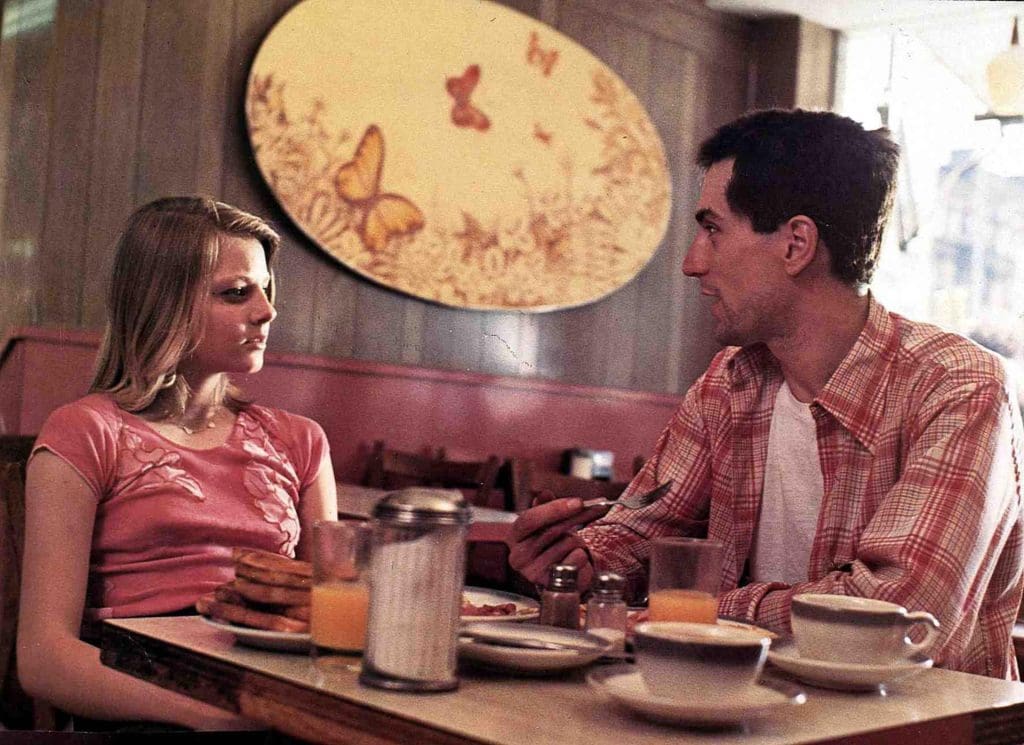
* * *
In 1976, Schrader told The Hollywood Reporter’s Richard Thompson a slightly different version of this story. “I was feeling particularly blue in a bar at around three A.M. I noticed a girl and ended up picking her up. I should have been forewarned when she was so easy to pick up; I’m very bad at it. The only reason I tried it that night is that I was so drunk. I was shocked by my success until we got back to my hotel, and I realised that she was: a hooker, underage and a junkie.”
Whatever the veracity of either story, that girl was Garth Avery and by the time she took her seat at the bar, she had already lived a very full life. The second eldest of six children, she was born and raised in Dumont, New Jersey, where she attended the prestigious Dwight School for Girls. A successful student and a prodigious poet, playwright, artist and musician, her elder brother Scott describes their upbringing as “upper middle class”.
“Garth is a little over a year younger than me, so we were the closest in the family,” he says. “In the late 1960s, my parents divorced, and our mom took off with the youngest four kids. They took the Queen Mary to London and lived in Hampstead Heath for at least a couple of years. Garth had this great spirit, this great sense of humour. She was always extremely precocious, very talented and a diligent student. And Garth just had an enormous number of friends—men and women, boys and girls—who were absolutely crazy about her.”
After returning to New York City in 1972, Garth developed an addiction to hard drugs and, as Scott says, “fell into the hippy lifestyle hook, line and sinker”.
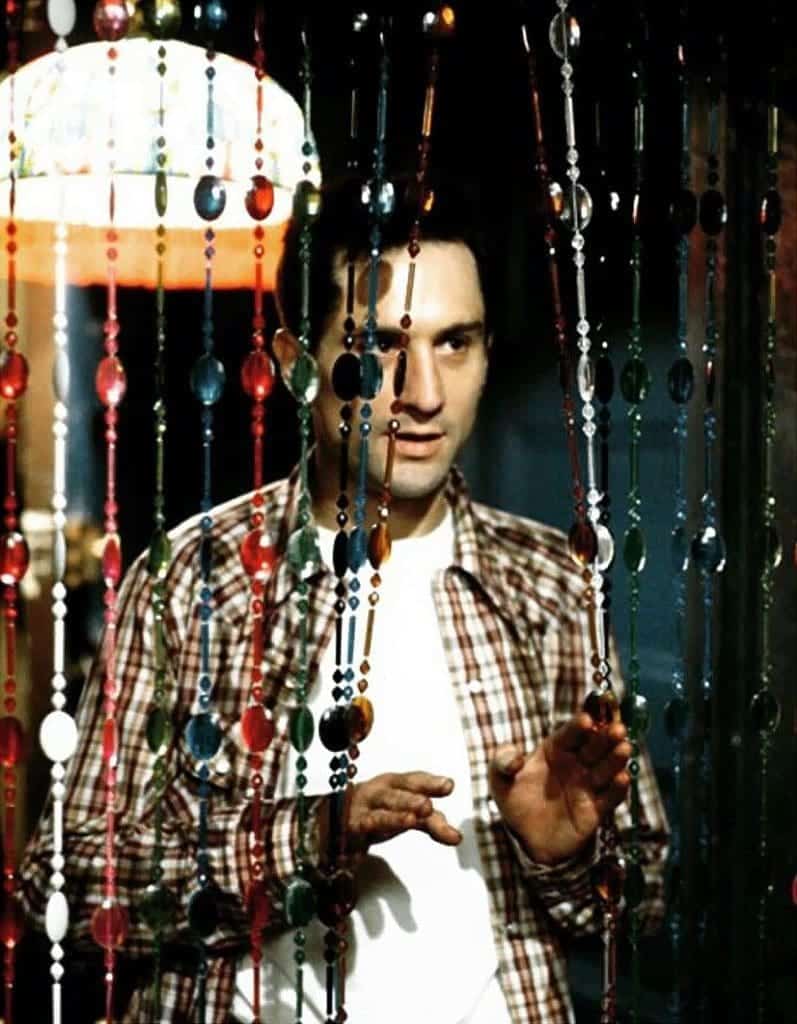
“I had no idea she was in Taxi Driver until someone in the family told me. Everybody was a little stunned, especially my mother who had studied theatre in New York. For her, Garth being in Taxi Driver was the most incredible thing in the world. I’ve done 20-30 plays over the years myself, but my mom was never interested in that,” he says, laughing. “Garth was the one.”
According to Schrader, her drug addiction rendered her too unreliable to be given a larger role in the film. “She’s just in one scene where she’s walking with Jodie and then,” he sighs, “she just couldn’t show up.” Another actor, Billie Perkins, plays the part of “Iris’s friend” in an earlier scene with Keitel.
Jodie Foster and Garth met once, at the Pierre Hotel in New York. “I said ‘hi’ and she said ‘hi’, and that was pretty much it,” Foster says. “I didn’t have anything to say. I think [Scorsese and Schrader] thought we’d have kind of an improv-y, bonding thing, but I was really just a twelve-year-old.”
For Scott, his younger sister’s lifestyle was typical of New York in the early 1970s and something he accepts without judgement. “Garth was always very frisky,” he says. “And later, she was working the streets, she was hustling. I have a younger brother Quentin, and Quentin and I were always trying to rescue our sister. We would go to the city, track her down and try to get her on the straight and narrow, but we never succeeded. One reason for that is that she was an alcoholic. She always had a bottle of Rolling Rock beer in her hand.” After her appearance in the film, Avery fell into a relationship with a wealthy New Yorker and moved into his apartment on the Upper West Side and, according to Scott, spent “hundreds of thousands of dollars on cocaine and drugs and whatever”. On October 19, 1994, Garth died from complications related to an HIV infection.
* * *
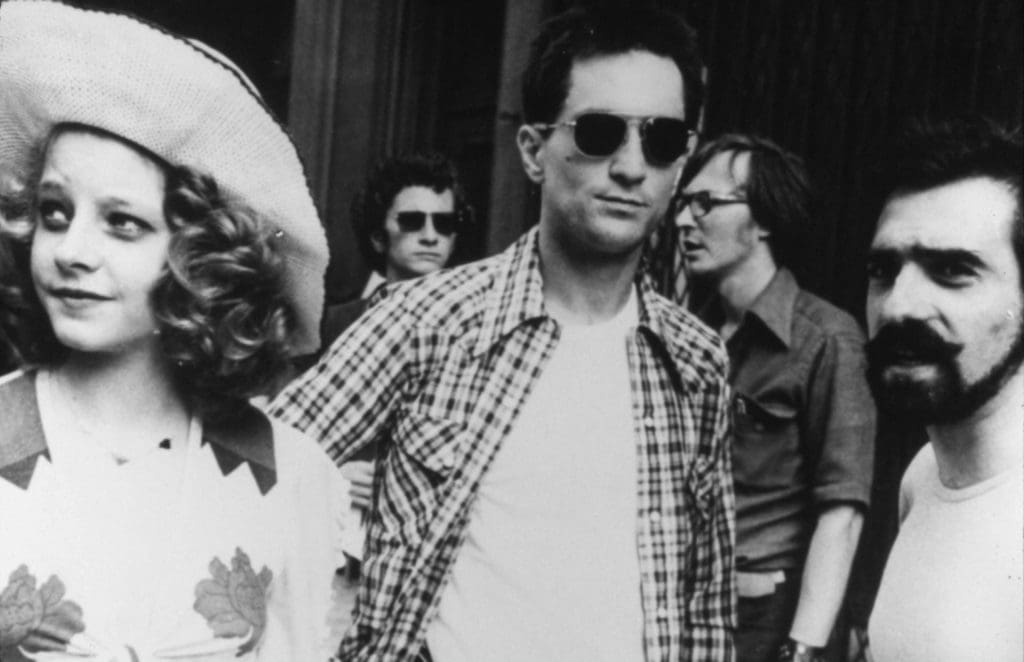
Schrader takes another sip of water and continues his story. “So, it’s the next morning I’m having breakfast with Garth, and Marty comes down and meets her. Virtually all of the stuff Jodie does in the movie we saw at that breakfast. She had a bag full of different coloured sunglasses and during the conversation she’d just take one out, put it down, take another one out, put it down. She would roll up a piece of bread, put butter on it, cover it with sugar,” he mimes using the sugar shaker, “sugar, sugar, roll it up and eat it like this,” he says, pretending to bite down on a cigar of bread. “All kinds of junkie mannerisms. As soon as Scorsese saw that, he knew what to say to Jodie. It was all there.”
Schrader leans back in his chair. “So that was the upside of making Sport white.”



